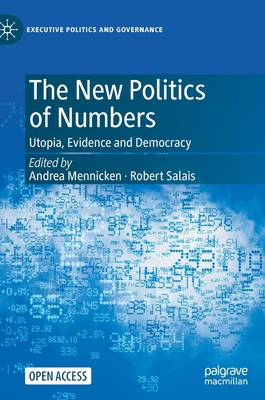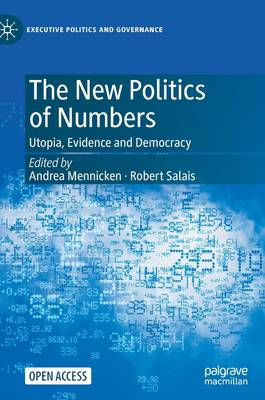
Door een staking bij bpost kan je online bestelling op dit moment iets langer onderweg zijn dan voorzien. Dringend iets nodig? Onze winkels ontvangen jou met open armen!
- Afhalen na 1 uur in een winkel met voorraad
- Gratis thuislevering in België vanaf € 30
- Ruim aanbod met 7 miljoen producten
Door een staking bij bpost kan je online bestelling op dit moment iets langer onderweg zijn dan voorzien. Dringend iets nodig? Onze winkels ontvangen jou met open armen!
- Afhalen na 1 uur in een winkel met voorraad
- Gratis thuislevering in België vanaf € 30
- Ruim aanbod met 7 miljoen producten
Zoeken
The New Politics of Numbers
Utopia, Evidence and Democracy
€ 52,95
+ 105 punten
Omschrijving
This open access book offers unique insight into how and where ideas and instruments of quantification have been adopted, and how they have come to matter. Rather than asking what quantification is, New Politics of Numbers explores what quantification does, its manifold consequences in multiple domains. It scrutinizes the power of numbers in terms of the changing relations between numbers and democracy, the politics of evidence, and dreams and schemes of bettering society. The book engages Foucault inspired studies of quantification and the economics of convention in a critical dialogue. In so doing, it provides a rich account of the plurality of possible ways in which numbers have come to govern, highlighting not only their disciplinary effects, but also the collective mobilization capacities quantification can offer. This book will be invaluable reading for academics and graduate students in a wide variety of disciplines, as well as policymakers interested in the opportunitiesand pitfalls of governance by numbers.
Specificaties
Betrokkenen
- Uitgeverij:
Inhoud
- Aantal bladzijden:
- 497
- Taal:
- Engels
- Reeks:
Eigenschappen
- Productcode (EAN):
- 9783030782009
- Verschijningsdatum:
- 13/10/2021
- Uitvoering:
- Hardcover
- Formaat:
- Genaaid
- Afmetingen:
- 148 mm x 210 mm
- Gewicht:
- 839 g

Alleen bij Standaard Boekhandel
+ 105 punten op je klantenkaart van Standaard Boekhandel
Beoordelingen
We publiceren alleen reviews die voldoen aan de voorwaarden voor reviews. Bekijk onze voorwaarden voor reviews.










